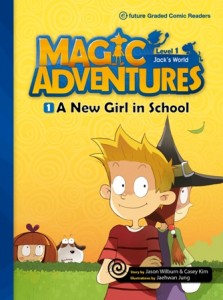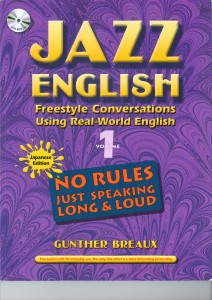Money matters…
…it does. Research shows that over a certain amount (depending on your personal circumstances), more money does not make you happier, but not having enough is definitely going to put a dent in your quality of life.
I’ve been thinking about investing for a while now, but only recently did I start reading up on it. It’s a huge and fascinating subject.
For teachers, saving and investment may not seem so important, but at least for those of us in Japan, the safety and dependability of our future pensions has some quite large question marks hanging over them. Are we even going to receive a pension? If we do, is it going to be enough to live on?
Employment stability is another concern. A few years ago, I took a job where I was initially assured that I would be able to stay there indefinitely. Somewhat predictably, four years later I was abruptly given five months notice.
After I got over the shock (and it is a shock, even if you suspect it is coming) I was lucky enough to find enough part-time work through friends and contacts to keep my family housed and fed until I found another job.
However, I decided I never wanted to be put in that situation again.
Part of financial resiliency is having savings and alternate forms of income. I’m going to address both of those today.
From my reading over the last six months or so, the following key points emerged:
- until you have a substantial nest egg, how much you save is more important than how well you invest
- costs (fees, etc.) are incredibly important in the long run
- educating yourself in financial matters has a huge return on investment
I recommend the following resources as good places to start:
Andrew Hallam’s blog
Andrew is a teacher in Singapore who has amassed a seven figure portfolio while working as a teacher. He gives very simple, practical advice on how to approach investing.
Also his book, the Millionaire Teacher, is very readable.
Mr Money Mustache
Writes about early retirement, saving money and purposeful living. Extremely enjoyable read.
A Random Walk Down Wall Street does a great job of explaining investing in the stock market.
The Millionaire Fastlane is an interesting book about becoming rich quickly.
I would probably read them in that order. The blogs in particular provide lots of links to extra resources.
In Japan, one easy way to invest in international trackers and ETFs is through Rakuten Securities. Once you have managed to set up an account, you can trade online relatively cheaply.
How about you? What is your investment strategy? I’ll be posting about mine later in the month if people are interested.
Spring (summer) cleaning
After the storm of grading comes the calm of sorting papers, clearing up the office, and throwing things away.
This year I have more than usual as I am continuing my journey towards minimalism. I have hundreds of novels in my office that I am slowly disposing of, re-reading where necessary. It’s slow but enjoyable.
After last year’s earthquake, I had to move my office twice: once to temporary quarters, then to the prefabricated building we’re in now. Our actual offices are being fixed up and reinforced, and we should be able to move back by sometime next year (I say sometime because the actual date they’re supposed to be finished has already been moved back severa times).
My goal is to have very few things to move back, so that my office ends up being a peaceful and tidy place where I can work.
As you can see from the picture above, I have a long way to go.
e-future Graded Comic Readers EFL ES extensive reading high school junior high school kids materials readers Reading reviews
by sendaiben
25 comments
e-future Graded Comic Readers: Magic Adventures
I just received my order of a full set of e-future Graded Comic Readers (Magic Adventures) and am, so far, extremely impressed.
The series consists of 18 comic books over three levels (200, 400, and 600 headwords). The story starts off in our world, then goes into Magic Land, then comes back to the real world. The characters are children and it has a real Harry Potter kind of vibe to it. The artwork is very nice, and the production values are high. They also have exercises and a glossary in the back.
Each book has a CD (not mp3 thankfully) with various tracks: theme song, the story, listen and read, listen and repeat, key words and expressions, then a great one: read the story using prompts, making them ideal for homework or self-study.
The books are comics, so feel very fresh. The students I tried them with today (elementary and junior high school) really liked them and so did I.
This is my find of the week: great, fresh, reading material at a reasonable price (set of 18 is just over 13,000 yen before discounts).
EFL eikaiwa high school junior high school Language learning materials reviews speaking teaching textbooks university
by sendaiben
5 comments
Jazz English
Published by Compass, Jazz English is a speaking textbook for lower-intermediate students. It works very well with junior high school students that have been studying for a while and are ready to take things to the next level in terms of speaking, as well as with high school and I imagine lower level university students. I have only used the first textbook, so this review does not address Jazz English 2, nor the companion workbook (which I am going to try soon).
The textbook consists of ten main units and three supplementary ones, with all units following the same pattern: new vocabulary, conversation prompt questions, a dialogue, a short reading section, a crossword to practice the vocabulary, a short reading task, exercises to support speaking, and a final speaking activity.
The focus of the book is for students to develop more autonomy while speaking, and to try to have longer and more complex conversations. It does this very well, at least in my experience, with students that have a solid base of vocabulary and English exposure, and who are motivated to improve their conversational skills. Our ‘advanced’ classes, consisting of junior high and high school students that have been studying for four or more years took to it very well.
This has been a real find for us this year, and I wholeheartedly recommend it for classes similar to the one described above. The course requires a lot of student input, so this book would not work well with unmotivated or reluctant learners.
Anybody else using Jazz English?
curriculum expectations language courses materials personal teaching
by sendaiben
2 comments
End of term/semester
I just finished my grading for this semester. It’s nice to be done with classes, and time to start looking ahead to the next semester.
Here are some changes I’m planning to make:
- Make my computer class more interactive. This semester was my first teaching in a computer lab, and the strange environment threw me. Now that I am more used to it, I am going to try to involve the students more in talking to each other.
- Create a workbook for extensive reading classes (this is a team project). Our extensive reading classes are going really well, but we’re hoping that a bilingual workbook/briefing will make things much smoother at the start and allow teachers to run their classes more easily.
- Start using a new textbook for my presentation classes. I used to use Speaking of Speech New Edition (Harrington and Lebeau) but while useful it is a bit simple and childish for my students. It was a good match when I was starting out teaching presentation, but I think I have outgrown it now. We’ll be using Presentations in English (Williams) instead.
This is my fourth year here, so I have established routines and am fairly comfortable. There is always room to tweak and improve though.
How about you, what are you going to change next time round?




